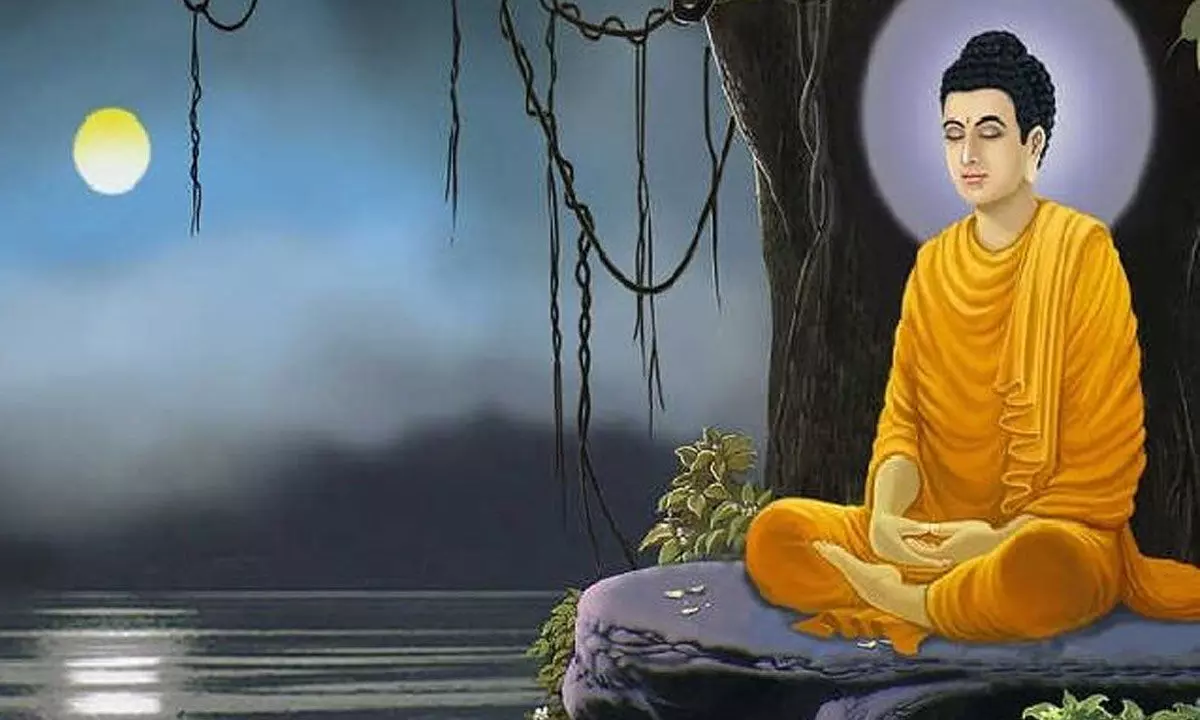Guru In Indian Tradition

The word guru is exclusively applicable to a spiritual guru, though the courtesy is generally extended to all teachers who may teach other sciences
The word guru is exclusively applicable to a spiritual guru, though the courtesy is generally extended to all teachers who may teach other sciences. There is a reason why the guru holds a preeminent position in all Indian traditions. The Hindu tradition of Vedanta is neither a mere intellectual activity of knowing the nature of the highest reality, Brahman, nor a religious activity of believing in a God who supervises creation. Brahman, as we may recall, is not the four headed creator, the consort of the goddess of learning about whom we read in stories, but it is the impersonal entity, which is of the nature of infinitely existing consciousness. That is the only Reality, and all creation is a manifestation of it. While it is so, it follows that every being from a blade of grass to the highest living entity, and all insentient things too, is not different from that reality. Ancient sages came to this conclusion after elaborate reasoning and debate. A corollary is that I am not, in essence, different from Brahman.
It is not difficult to intellectually appreciate this idea, but Vedanta does not stop there. The Upanishadic sages expect that we must experience it. The great obstacle to this experience is our present idea of self. We call this the ego, which says that I am an Indian, a person of a social standing, rich, poor, handsome, male, female, belonging to a religion and so on. This idea must be overcome. It is one of the toughest things. We are more comfortable with the small self.
Why should we overcome this idea of a small self? The answer is that the small self is the cause of all the misery, conflicts, violence and bloodshed in the world. All happiness from enjoyment of objects is fleeting, replaced by some misery. Lasting happiness is from understanding the highest reality, experiencing it and living it.
What all we call spirituality is the effort to reject the lower self and identify with the infinite self. The lower self is full of likes, dislikes, greed, hate and so on. This dirt of the mind has to be washed. One detergent is karma yoga. Thereafter it is a process of training the mind. Even as we need a coach for music or for sports such as football, we need a spiritual coach. He is the guru.
The Hindu tradition takes the Supreme Reality itself as the guru. It cannot be seen, and hence we accept some person who is the personification of that knowledge as the guru. We come across such people rarely. We have the freedom to question, to freely put across all our questions and debate. The teacher should be capable of removing all our doubts and queries. He should be compassionate to impart the knowledge to us. He is like a spiritual doctor examining our anger levels, hate levels or purity levels.
Obviously, the ancient sages are such gurus. But they are many in number and they belong to unknown antiquity. Hence, our tradition has accepted sage Vyasa as the first human guru because of his phenomenal work of classifying the Vedas, writing dialectical debates in the form of aphorisms to identify the unity of thought in them and in humanizing that knowledge by writing the Mahabharata.
The full moon day (purnima) of this month (named Aashaadha) of Hindu calendar is the day to pay our respects to Vyasa. Purnima signifies the fullness of knowledge, brightness and happiness it bestows. While writing the Mahabharata Vyasa makes a challenging statement – ‘In all the four human pursuits – dharma, Artha, kama and moksha – that which is in the book is elsewhere in the world; what is not in the book is nowhere in the world’. There are hundreds of episodes and stories which dissect and discuss these human pursuits from various angles. They are meant to bring out the best in every person in every field.
The goal of Buddhists is to evolve to the level of Buddha and the goal of Jains is to evolve to the level of Mahavira. They too celebrate the Purnima with great devotion. Different traditions like Shaiva, Vaishnava, Shakta and others have a long list of gurus till date, but all regard Vyasa as the first guru. The right homage is not mere worship, but to walk their path.
(Writer is former DGP, Andhra Pradesh)














